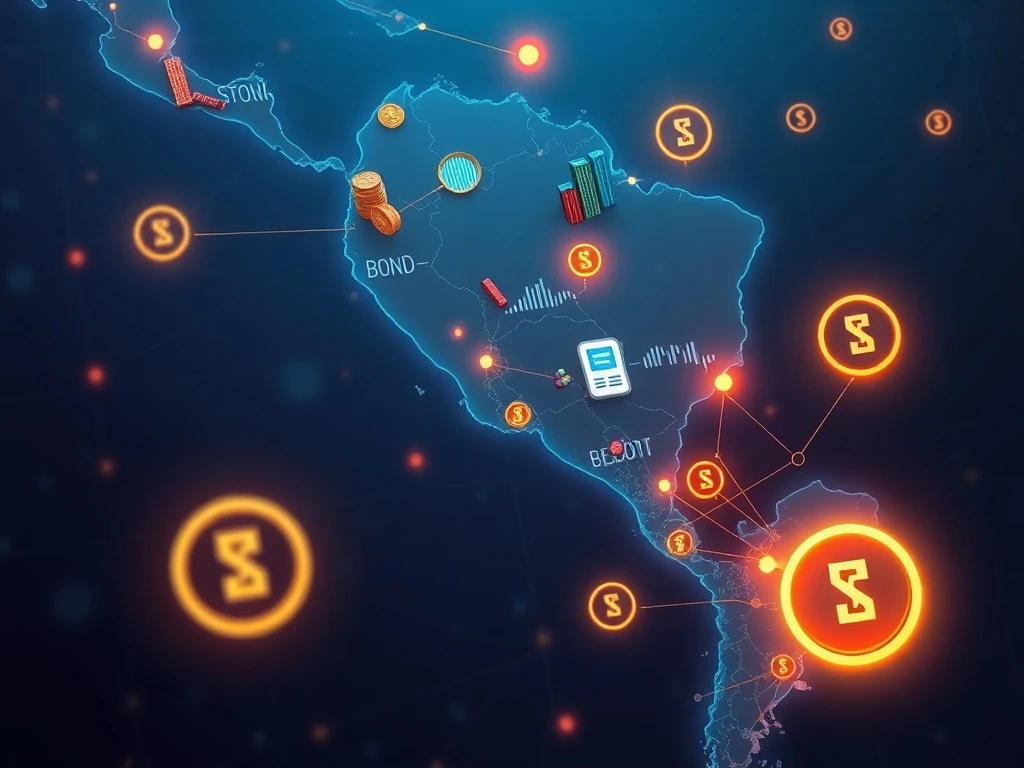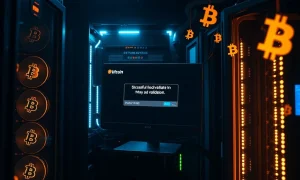Latin America’s capital markets face a critical transformation opportunity through blockchain tokenization, potentially unlocking trillions in investment and solving persistent liquidity challenges that have hampered regional economic growth for decades.
Tokenization Addresses Systemic Market Inefficiencies
Systemic inefficiencies continue to plague Latin American capital markets, consequently creating significant barriers to investment. Moreover, high fees, complex regulations, and structural technological barriers contribute to what industry experts term “liquidity latency.” Additionally, Bitfinex Securities identifies these challenges as major obstacles to capital flow. However, tokenization presents a viable solution to these longstanding problems.
How Tokenization Solves Liquidity Challenges
Real-world asset (RWA) tokenization fundamentally transforms market accessibility. Essentially, this process involves minting financial assets on blockchain ledgers. Furthermore, it dramatically improves investor access while creating new trading opportunities. Specifically, tokenization offers:
- Reduced issuance costs by up to 4% for capital raises
- Faster listing times with reductions of up to 90 days
- Enhanced transparency through immutable blockchain records
- Improved efficiency in settlement and trading processes
Industry Leaders Embrace Tokenization Revolution
Jesse Knutson, Head of Operations at Bitfinex Securities, emphasizes that tokenization represents the first genuine opportunity in generations to rethink finance. Additionally, he notes that it lowers costs while accelerating access. Meanwhile, Paolo Ardoino, CEO of Tether, highlights how tokenization removes capital access barriers for developing economies. Consequently, businesses and individuals gain unprecedented access to investment opportunities.
Projected Growth and Market Impact
Major consulting firms project enormous growth for tokenized securities. Specifically, McKinsey predicts a potential $3 trillion market by 2030 in bullish scenarios. Alternatively, base case projections still reach $1.8 trillion. Furthermore, Bitfinex’s pioneering work in El Salvador demonstrates practical applications. For instance, tokenized US Treasury bills now enable broader access to dollar-denominated hedging instruments.
Regulatory Progress and Future Outlook
Regulatory frameworks continue evolving to support tokenization adoption. Significantly, Bitfinex became the first exchange licensed under El Salvador’s Digital Assets Issuance Law. Moreover, this regulatory approval enables secondary trading of tokenized assets. Therefore, institutional adoption appears increasingly likely across Latin American markets.
Frequently Asked Questions
What is asset tokenization?
Asset tokenization involves converting physical or financial assets into digital tokens on a blockchain, enabling fractional ownership and easier trading.
How does tokenization benefit Latin American markets?
Tokenization reduces costs, improves liquidity, and increases accessibility to investment opportunities that were previously limited to institutional investors.
What types of assets can be tokenized?
Virtually any asset can be tokenized, including real estate, commodities, stocks, bonds, and even intellectual property rights.
Is tokenization regulated in Latin America?
Regulatory frameworks are developing rapidly, with El Salvador leading the way through its Digital Assets Issuance Law and other countries following suit.
What are the risks of tokenization?
Potential risks include regulatory uncertainty, technological vulnerabilities, and market volatility, though blockchain’s transparency helps mitigate some concerns.
How can investors participate in tokenized markets?
Investors can access tokenized assets through licensed digital asset platforms and exchanges that comply with local regulatory requirements.








